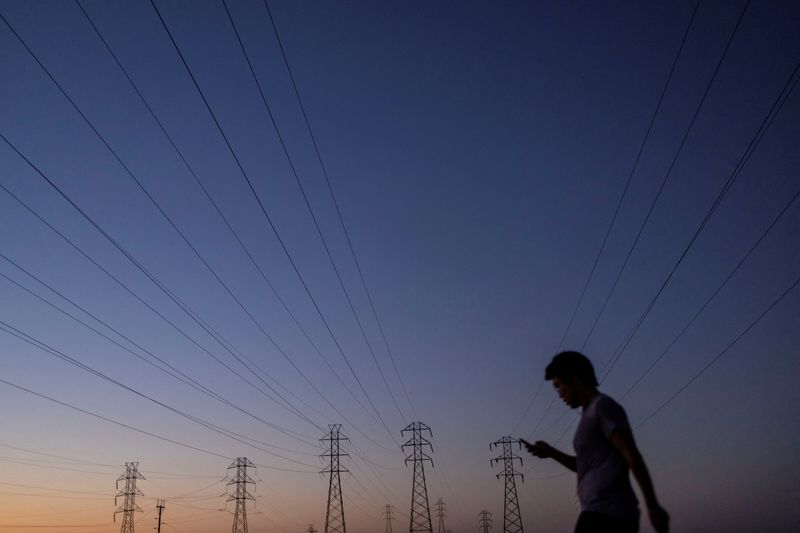
© Reuters. FILE PHOTO: A man walks by power lines, as California’s grid operator urged the state’s 40 million people to ratchet down the use of electricity in homes and businesses as a wave of extreme heat settled over much of the state, in Mountain View, California
(Reuters) – California’s power grid urged customers to conserve energy for a 10th consecutive day on Friday as homes and businesses crank up their air conditioners to escape a brutal heat wave lingering over the drought-stricken region since the start of September.
This will likely be the last day of the heat wave as temperatures are forecast to drop to near normal levels on Saturday across much of the state.
The California Independent System Operator (ISO), grid operator for most of the state, said conservation efforts so far this month have been key to helping the grid avoid rotating outages.
The grid came close to imposing rotating outages on Tuesday when power demand hit an all-time high and electric prices spiked to two-year highs.
The ISO wants consumers to conserve energy during the late afternoon hours when the sun goes down and solar power stops working. Solar has provided about a third of the grid’s electricity during the middle of the day but nothing at night.
High temperatures in Sacramento, the state capital, have topped 100 degrees Fahrenheit (37.8 Celsius) every day so far in September.
After hitting a record 112 F on Thursday, meteorologists at AccuWeather forecast high temperatures in Sacramento would hit 106 F on Friday before dropping to 87 F on Saturday when the heat wave breaks. That compares with the current record of 108 F for Friday in 1944 and a normal high of 90 F.
California’s biggest utilities are PG&E (NYSE:) Corp’s Pacific Gas and Electric, Edison International (NYSE:)’s Southern California Edison and Sempra Energy (NYSE:)’s San Diego Gas and Electric.
The ISO projected power demand would reach 46,278 megawatts (MW) on Friday and 35,013 MW on Saturday. That compares with the preliminary record of 52,061 MW on Tuesday, which broke the prior all-time high of 50,270 MW in 2006.


Be the first to comment